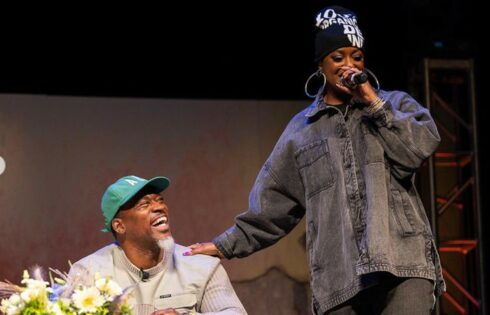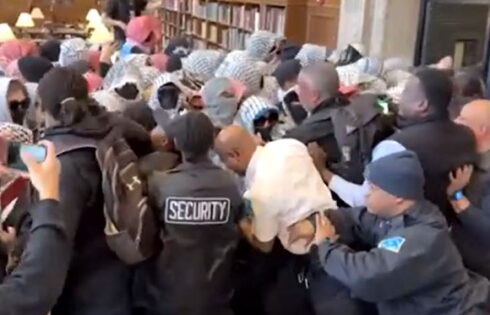
The Massachusetts Institute of Technology made headlines in May when its leaders told faculty to discontinue the practice of requiring mandatory diversity, equity and inclusion statements in faculty hiring.
It blazed a trail for elite colleges, as Harvard did the same a few weeks later, and Cornell also appears to have followed suit.
But a prominent MIT alumni group argues the move is not enough to protect free speech, academic freedom and intellectual diversity, and is calling on campus leaders to go further.
The MIT Free Speech Alliance in mid-June released a set of recommendations urging the university to establish an institutional neutrality policy, much like Harvard did in May. It’s one of several recommendations the alliance developed over the last six months.
“We are much encouraged that President Sally Kornbluth has ended the use of DEI statements,” Eric Rasmusen, chairman of the alliance’s communications committee, told The College Fix in an email, adding that abolishing DEI statements had been featured prominently on their list of recommendations, but no longer necessary to include.
The MIT Free Speech Alliance was formed in the wake of a controversy surrounding MIT’s 2021 cancellation of a guest lecture by University of Chicago Professor Dorian Abbot because some faculty were upset he had criticized DEI.
In addition to adopting an institutional neutrality policy, the alliance recommends that MIT require free speech training for students, and develop a campus group “responsible for addressing concerns around free speech and for organizing the various activities necessary to foster a culture of free speech.”
The alliance also calls on MIT to rein in and reform its discrimination and harassment response office.
The group argues instituting such policies would support and complement efforts by the faculty-led Committee on Academic Freedom and Campus Expression, charged with institutionalizing MIT’s Statement on Freedom of Expression and Academic Freedom, approved in December 2022.
Whether MIT leadership will move forward on these proposals is unclear.
Alliance President Wayne Stargardt told The College Fix that several recommendations are beyond the scope of the MIT faculty and require action by administration.
“Consequently, we have also provided our recommendations to the president of MIT,” he said. “She has acknowledged receiving them, but has not provided any further response.”
MIT spokesperson Abby Abazorius told The College Fix the university “is grateful for each of the nearly 147,000 living alumni in our community.”
“As an institution that encourages independent thinking from its students, MIT expects and welcomes the same from its alumni,” Abazorius said via email.
“As a general practice, however, MIT does not comment on the individually held and freely expressed views of any particular alumnus or alumna, or on the activities of any independently organized group,” Abazorius said.
“MIT’s leaders have been clear in affirming MIT’s support for free expression and academic freedom and committed to the work of fostering open dialogue and community on our campus.”
A member of Committee on Academic Freedom and Campus Expression was also contacted, but they replied that they did not wish to speak to the press about this issue.
Stargardt told The Fix his group was pleasantly surprised that MIT banned mandatory DEI statements.
“I would like to say that we saw this policy change coming, but we didn’t,” Stargardt said, adding their main focus is the institutional neutrality push. “Although we have also long opposed DEI statements on our website, we do not believe that our position was the primary driver for MIT’s policy change.”
Stargardt said Kornbluth had conducted a poll of MIT’s faculty asking whether they felt DEI statements are beneficial in the hiring process. When a “large majority” responded that they were not in favor of DEI statements, the decision was made to ban them.
Nevertheless, Stargardt said his group feels “optimistic.”
Kornbluth’s tendency is to get a consensus of the faculty before acting, Stargardt said, and this allows any policy she enacts to reflect the true culture and feeling at MIT.
This culture, because of MIT’s focus on accurate scientific research, is “generally favorable towards freedom of expression and free speech,” he said.
IMAGE: MIT faculty adopt free expression statement that protects ‘offensive’ speech
IMAGE: Jose Bastos Silva / Shutterstock
Like The College Fix on Facebook / Follow us on Twitter






Please join the conversation about our stories on Facebook, Twitter, Instagram, Reddit, MeWe, Rumble, Gab, Minds and Gettr.